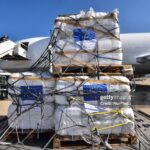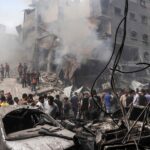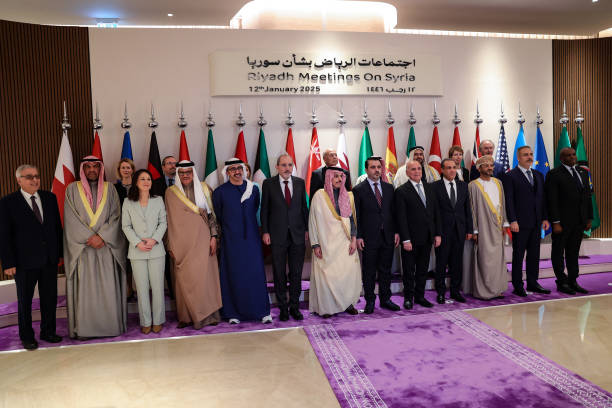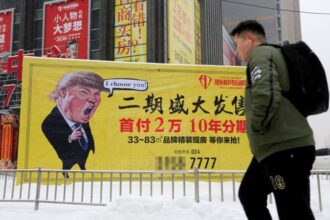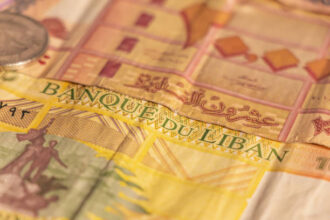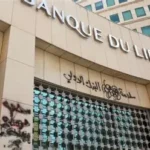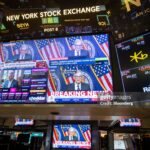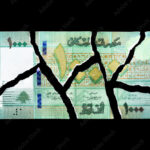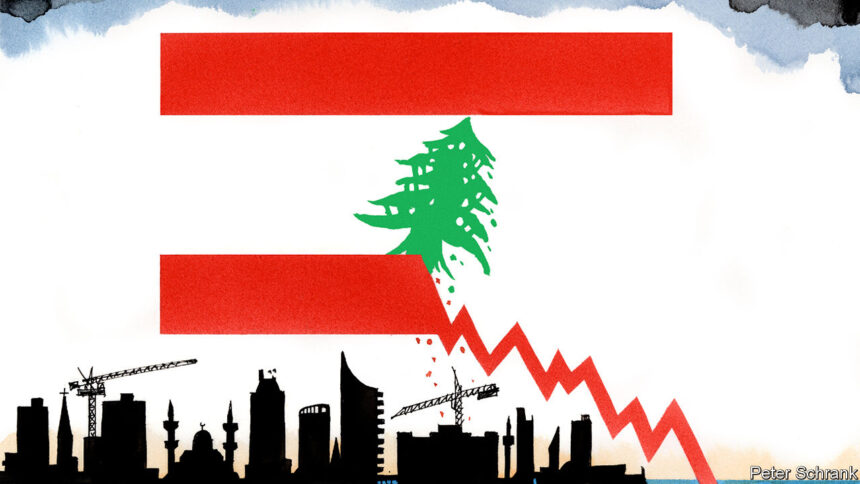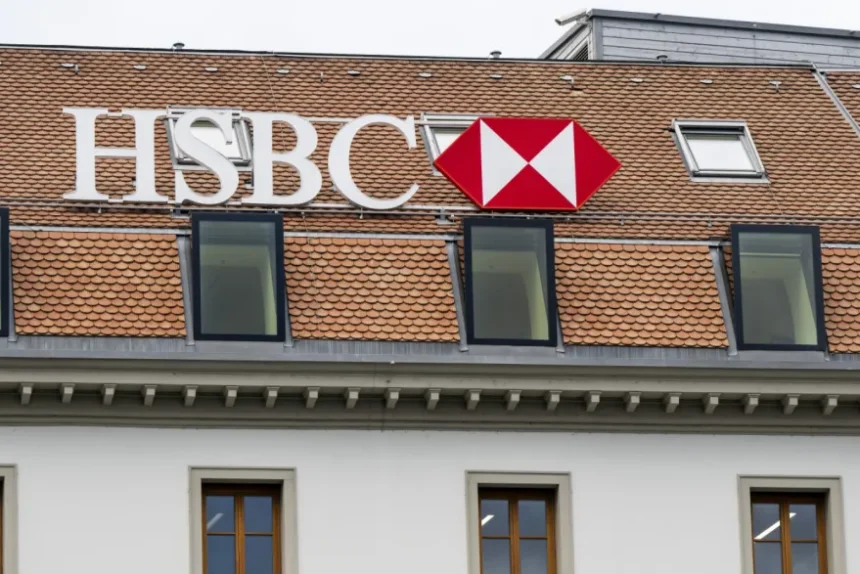The thaw in Saudi-Syrian relations reached a watershed moment last week as Riyadh pledged $6.4 billion in investments to war-ravaged Syria at a high-level summit in Damascus. The package marks the most ambitious foray by Saudi Arabia into Syrian reconstruction since the civil war began, signaling a pivotal shift in the geopolitical and economic landscape of the region.
Saudi Arabia’s embrace of Syria’s new leadership came after the ouster of Bashar al-Assad in December and the installation of interim President Ahmed al-Sharaa. With Assad gone and Syria distancing itself from Iran, the door opened for Gulf states, especially Saudi Arabia, to play a foundational role in rebuilding the nation’s shattered economy and infrastructure.
The 2025 Damascus Investment Summit
The Damascus summit, attended by a large delegation led by Saudi Investment Minister Khalid al-Falih and over 100 Saudi companies, saw the signing of 47 agreements covering key sectors. This surge of investment serves both to aid Syria’s reconstruction and to establish Saudi Arabia as a central stakeholder in the country’s future. Saudi Arabia’s $6.4 billion investment package – formalized at the Damascus summit – represents far more than dollars; it is a declaration of intent to decisively shape post-war Syria’s recovery, alliances, and economic potential for the next generation
During the visit, Al-Falih laid the foundation stone for the “’Fayhaa’” white cement factory in Adra Industrial City, northeast of Damascus. The facility, slated for completion within months, is among the first major Saudi investments in Syria following a series of exploratory business visits. Speaking to reporters at the site, Al-Falih said dozens of Saudi companies were ready to invest in Syria across construction, energy, agriculture, IT, and industrial sectors. The white cement plant is valued at around 100 million riyals ($27 million) with a projected annual output of 150,000 tons. It is expected to create 130 direct jobs and more than 1,000 indirect positions.
Reviving a War-Torn Economy
Riyadh has also led high-level diplomatic efforts to ease Western sanctions on Syria. The campaign culminated in US President Donald Trump’s decision to lift certain restrictions during his recent visit to Riyadh, following discussions with the Saudi Crown Prince. Issam Zuhair Al-Ghreiwati, Deputy Chairman of the Syrian Chambers of Commerce and head of Damascus’s Chamber of Commerce, called the Saudi delegation “the largest and most significant from any Arab country.”
The forum comes as the Syrian government, now led by President Ahmed Al-Sharaa following the ouster of Bashar al-Assad late last year, seeks to attract international investors to help rebuild a country devastated by 14 years of war.
While UN estimates put Syria’s reconstruction needs at $400 billion, Damascus says the actual cost could reach $600 billion. “This is the most important economic event in Syria since the liberation and the relaunch of our economy,” Al-Ghreiwati told Asharq Al-Awsat.

The removal of US sanctions and of Syria’s “designation as a state sponsor of terrorism” is strategically important. The decision was followed by the EU passing legislation to lift all sanctions, thereby enabling Syria’s reintegration into the international economic and financial community.
The Gulf and other Arab countries are steadily bringing Syria back into the fold, restoring long-disrupted economic and financial relations. Saudi Arabia and Qatar have settled Syria’s arrears to the World Bank, pledged to fund public sector restructuring and rebuild energy infrastructure, signed agreements for major infrastructure and power projects, and the resumption of airline services. Iraq has reopened a main border crossing, and DP World has signed an $800 million deal to develop Tartus Port.
Sanctions removal allowed for Syria’s renewed participation in the SWIFT payment system, reactivating formal channels for international trade, remittances and financial flows, delivering a powerful antidote to the scenario of hyperinflation and a dominant illicit sector.
The removal unlocks a multistage recovery process, sequentially addressing the critical deficits in liquidity, capital and strategic infrastructure investment that currently paralyse the country.
He said Saudi investors were returning after 14 years of absence, marking a “new era of cooperation” between the two countries. “Syria was off the investment map due to the previous regime,” he said. “Now, with the rise of a new government and the immense financial surpluses in Saudi Arabia looking for emerging markets, we are entering what could become the largest Arab economic partnership.”
Al-Ghreiwati said Syria had reformed investment laws, liberalized foreign exchange controls, and modernized trade regulations, rapidly shifting toward a free-market economy. “We now have one of the most attractive investment landscapes in the region,” he said. He added that the most critical takeaway from the forum was Saudi Arabia’s confidence in Syria’s recovery. “This isn’t just about money; it’s about belief in Syria’s future,” he said. “The Kingdom sees Syria as a nation rebounding from crisis, not a liability. There’s no turning back.”
The private sector, he said, sees this event as “the official green light for reconstruction, with Saudi Arabia leading the economic charge.”
Financial Breakdown
| Sector | Amount (US$ bn) | Description |
|---|---|---|
| Real Estate & Infrastructure | 2.93 | Construction, cement, transportation, housing |
| Telecommunications & IT | 1.07 | Telecom networks, cybersecurity, digital education |
| Other Sectors | 2.4 | Energy, agriculture, finance, industry, tourism, services |
| Total Announced | 6.4 | Investments across more than 100 Saudi and regional companies |
Companies involved include Saudi Telecom Company (STC), GO Telecom, Elm (digital security), Cipher (cybersecurity), and Classera (education technology).
Strategic Significance
- Political Realignment: The summit and investments reflect a fundamental shift in Syrian alliances, distancing from Iran and realigning with Arab states, notably Saudi Arabia and Qatar.
- Sanctions Relief: The surge in investment was enabled by the recent lifting of U.S. and E.U. sanctions—negotiated partly at Riyadh’s urging—allowing for legal cross-border investment and international financial transactions.
- Institutional Backing: Riyadh, alongside Qatar, settled Syria’s $15 million debt to the World Bank earlier this year, unlocking critical reconstruction funds and multilateral assistance.
Projects on the Ground
- Launch of the Fayhaa White Cement Plant in Adra Industrial City, a flagship infrastructure project.
- Multi-billion dollar construction initiatives in roads, housing, ports, and energy, including partnerships with global and regional players (e.g., DP World, Qatari power companies).
- Digital transformation led by Saudi companies, aiming to modernize Syria’s internet, telecom, and education networks.
Business and Governance Framework
- The establishment of a Saudi-Syrian Business Council to foster long-term economic integration.
- Dozens of joint ventures and memoranda of understanding focus on sustainable development and local employment creation.
- Provisions for infrastructure rebuilding, energy sector modernization, and support for small- and medium-sized enterprises (SMEs).
Regional and International Impact
- Economic Normalization: The summit signals a return of Syria to the Arab economic fold, laying the groundwork for additional investments from the Gulf and beyond.
- Geopolitical Chessboard: Riyadh’s initiative limits Iranian and Russian influence in Syria, enhances Gulf leverage, and aligns Damascus with the region’s economic resurgence.
- Humanitarian and Social Prospects: Investments target not only physical reconstruction but also digital literacy, telecom access, and job creation, with an eye on stability after years of upheaval.
Challenges and Future Prospects
- Despite the optimistic outlook and large financial pledges, observers note ongoing issues: sporadic sectarian unrest, the need for legal and regulatory reform, and Syria’s ability to absorb large-scale investment efficiently.
- The agreements inked last week are widely seen as a foundation for even greater Gulf — and likely international — involvement in rebuilding Syria’s battered economy in the years ahead.Tapping energy potential
- The country’s substantial, largely unexploited, onshore and offshore oil and gas reserves could become an important source of reconstruction finance and job creation. Strategically and importantly, the removal of sanctions would allow oil and gas pipelines to be reopened, and new ones built; pre-civil war, Syria produced up to 400,000 barrels a day of crude versus between 80,000-100,000 bpd this year.
- Reactivating existing wells and oil export infrastructure could become a major source of revenue and foreign exchange, dramatically improving Syria’s fiscal position and its ability to reconstruct the devastated country, and bring in international funding.
- New pipelines linking oil and gas from the Gulf (notably Qatar, Kuwait and Saudi) and Iraq to the Mediterranean would provide a strategic alternative to maritime routes through the Straits of Hormuz and Red Sea.
- Azerbaijan and Syria signed a preliminary agreement on July 12, pledging co-operation in the energy sector – to enable export of gas from Azerbaijan to Syria, through Turkey – and help in rebuilding Syria’s energy infrastructure.
- Over the medium and longer term, a new, transformative energy infrastructure and map linking the hydrocarbon-rich regions of the Gulf and Iraq to the Mediterranean coast can be developed: a major building block in stabilising and helping to redevelop Syria.
- The lifting of sanctions is a critical initial step supporting Syria in emerging from a vicious cycle of destruction, economic collapse and illicit activity into a virtuous circle of reconstruction, redevelopment, regional and international reintegration.
- The realisation of this road map requires a commitment from Syria to undertake essential reforms in governing, the rule of law and institutional transparency. Only then can the country hope to attract and retain the human and financial capital needed to rebuild its economy, regain investor trust, and reclaim its historic role at a vital geostrategic crossroads.



